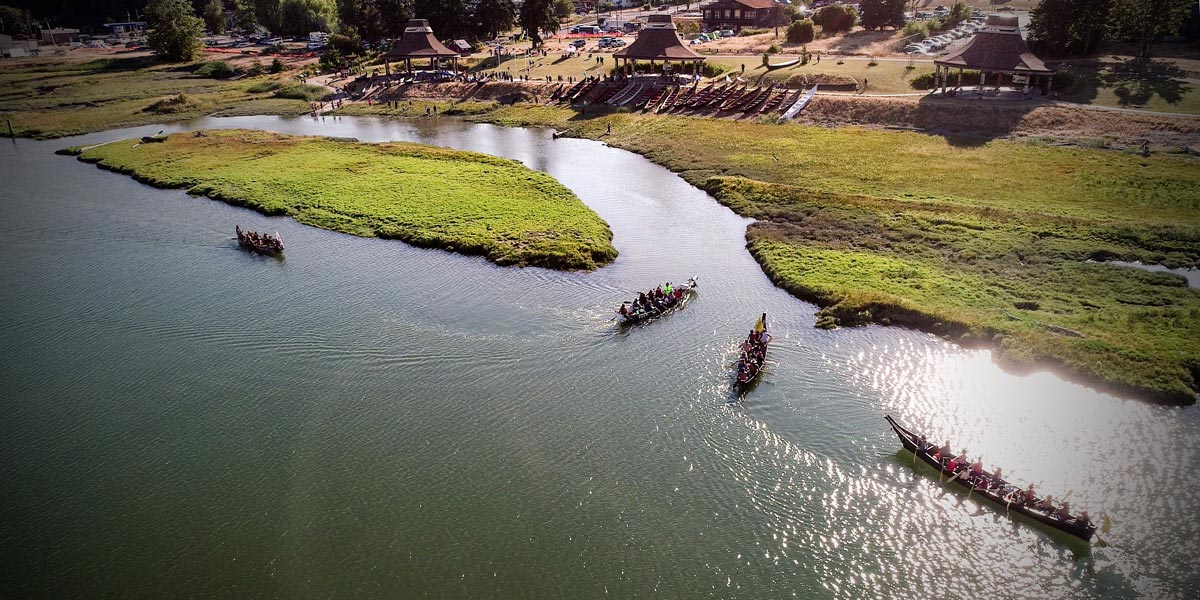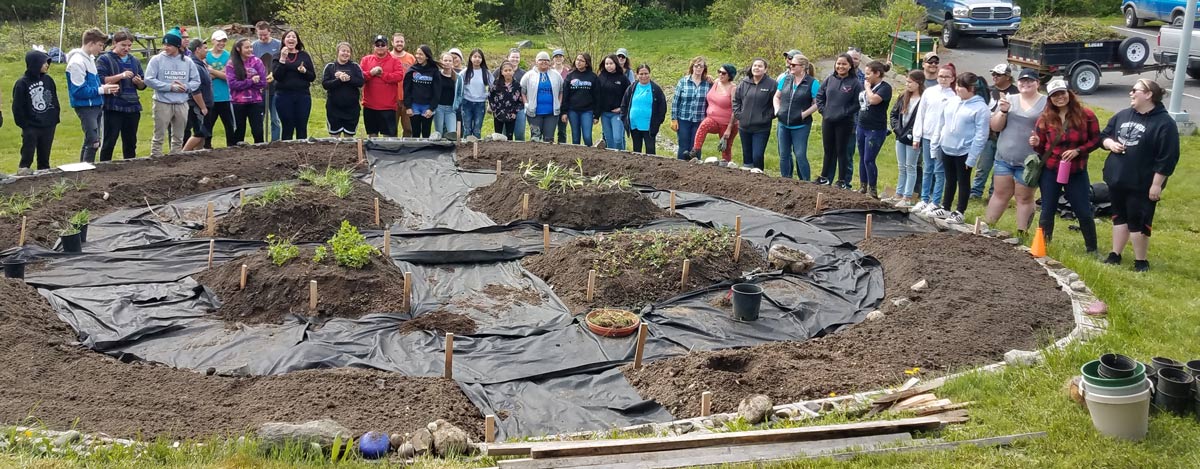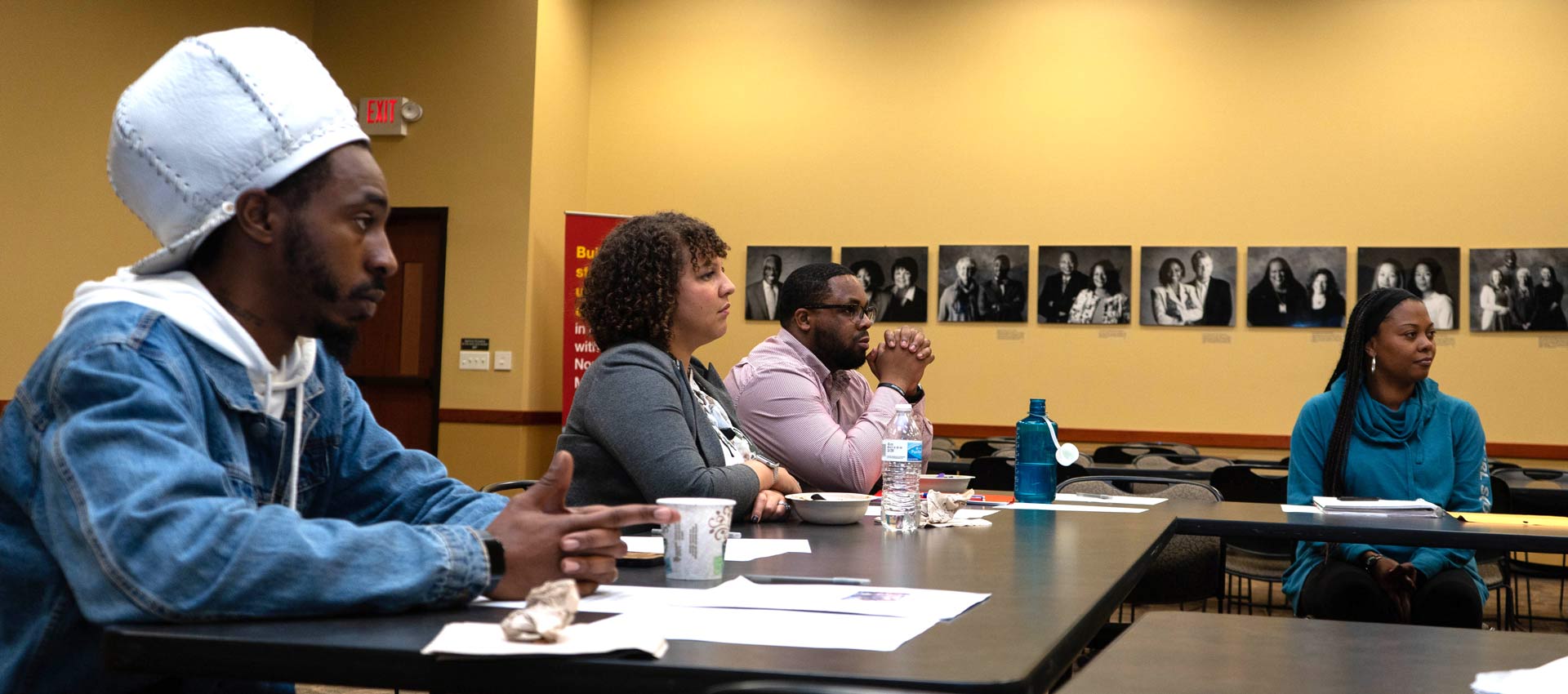2020 Annual Report
Our Mission
The mission of the Northwest Area Foundation is to support efforts by the people, organizations, and communities of our eight-state region to reduce poverty and achieve sustainable prosperity.
Read More
Our Approach
We support grantees across our region—eight states and 76 Native nations that share the same geography—to use their wisdom, passion, and expertise to create solutions for expanding prosperity in their communities. Our grantees are building more equitable economies—with good jobs, thriving businesses, and vibrant cultures. They’re using their communities’ unique assets to define success on their terms. They’re overcoming systemic racism, violence, and exclusion. In other words, they’re liberating themselves from business as usual.
After years of listening to and learning from our grantees, we focus on four portfolios for grantmaking: Opening Access to Capital, Expanding Work Opportunity, Supporting Enterprise Development, and Promoting Financial Inclusion.
We believe giving our attention and resources to these areas is the best way to be a partner to grantees serving our priority communities:
• Native Americans
• Communities of Color
• Immigrants and Refugees
• People in Rural Areas
And, during this year of crises, they’re finding we can’t go back to normal. Normal didn’t work for them. They’ve been hard at work pursuing a new normal that serves their communities’ needs with equity. The crises merely underscore the urgency, and the need for the rest of us to step up our support.
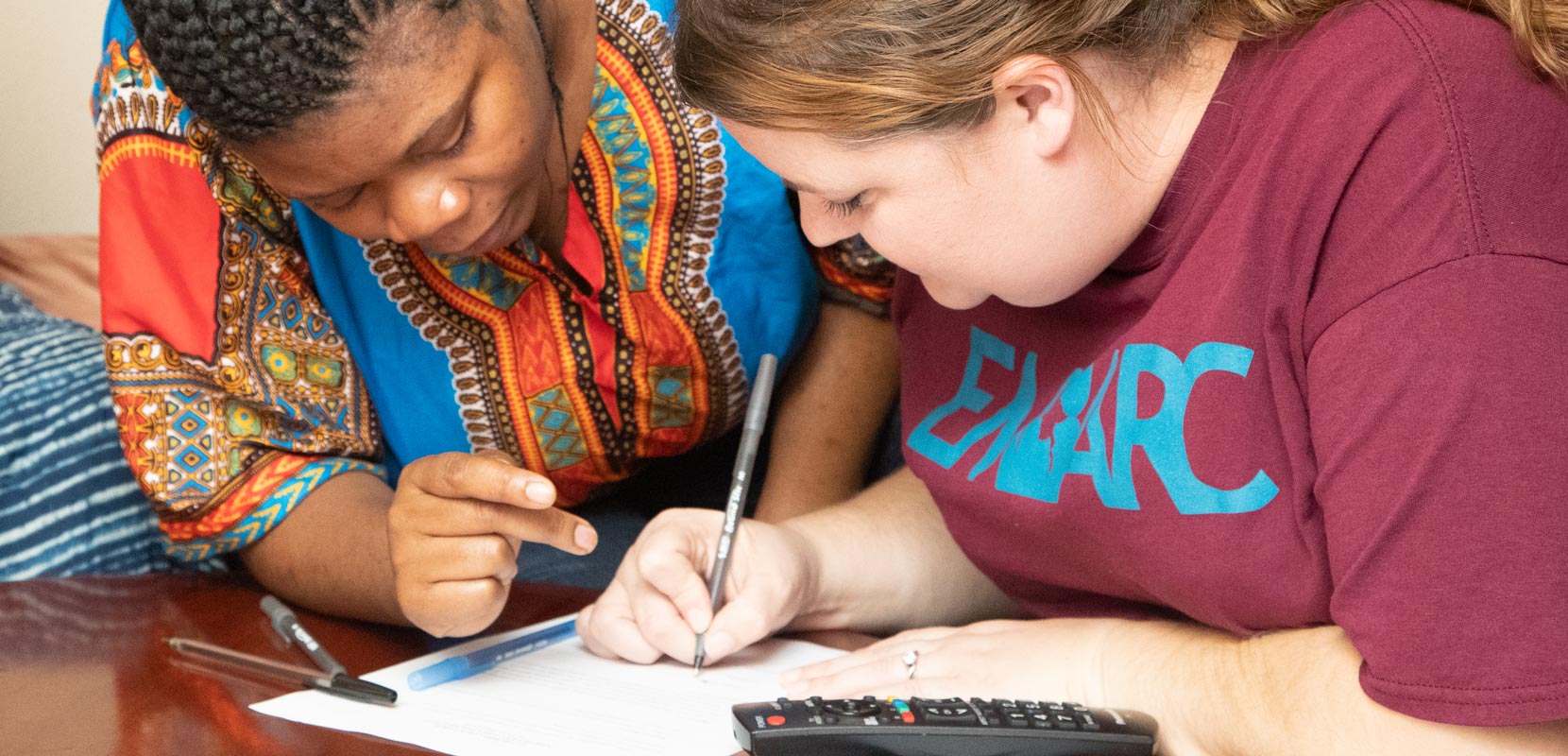
NWAF 2020 Annual Report
A Snapshot of This Year of Crisis and the Need for a New Normal
By Clay Scott
This has been a year without precedent in our lifetimes.
The crises of 2020—a pandemic, economic turmoil, and social unrest in the wake of the killing of George Floyd—have affected all of us. The impacts have been catastrophic for our priority communities: Native Americans, communities of color, immigrants and refugees, and people in rural areas.
Many of our grantees were already operating in communities where resources were stretched thin and race and class inequities were enormous. For them, the crises have made challenging situations even more demanding. Most have had to put projects on hold and redirect their efforts and resources in response to critical, emerging conditions on the ground.
We have been in frequent contact with our grantees and listened intently to their stories from the front lines of these multiple crises. We’ve been hard at work changing our approach in order to respond to their needs more efficiently, and with more urgency. We’ve tried to be good thought partners to our grantees as they make difficult decisions.
Traditionally we’ve used this space in the annual report to shine a light on the work of one or more of the extraordinary grantees we have the honor of partnering with. But this year, we’ve designed it as more of a report out from us, a snapshot of what we’re hearing and thinking during this most unusual time. With so many of our grantee partners facing unprecedented demands on their time and talent, we asked a number of them to share insights via email as their schedules permitted so that their voices would be represented in this report.
Our board member Dr. Duane Carter says this is a moment of truth for all of us. Grantees, with their steadfastness, resourcefulness, and incredible resilience, are leading the way.
Respond, Reimagine, and Restructure is a promising approach that surfaced from grantees.
We have come to realize that we cannot approach this year’s crises in the same way our country has done in the past.
The standard playbook for disaster recovery calls for rescue, relief, and recovery. But the playbook is no longer appropriate, and no longer sufficient, when it is increasingly clear that what we need is a new normal that really works for our priority communities.
Instead, our Foundation has been developing ideas about a potential approach that, for now, we’re calling: Respond, Reimagine, and Restructure. The inspiration for it comes from Common Future (formerly BALLE). It reflects insights we’ve received from grantees about ideas we might use immediately and for the long term.
President and CEO Kevin Walker puts it this way:
“The bond we have with our grantees is at the heart of how we’ve tried to respond first to the pandemic, and then subsequently to George Floyd’s killing. Respond, Reimagine, and Restructure embodies ideas we’ve heard from grantees. They’ve told us over and over that it’s not a matter of getting back to where they were, because the old status quo was broken.”
Kevin Walker
President and CEO, Northwest Area Foundation
What does Respond, Reimagine, and Restructure mean?
This approach resonates with our grantees, board, and staff, but there’s still work to do to further define what it means for our grantmaking. But here’s how we’re thinking about it right now:
We are responding by contributing to pooled funds that meet the immediate needs of communities affected by the COVID-19 pandemic. We’ve also provided supplemental grants to current grantees, offering general operating support, redefining grant terms, and being flexible to streamline grant conditions in other ways as needed. We’re supporting many of the organizations dedicated to the need for reconciliation and healing. And, we’ve provided grants to organizations working for education and advocacy around harmful narratives about people of color, including immigrants and refugees.
We are supporting organizations approaching this pivotal moment as an opportunity for true change and reimagining the power dynamics and relationships that are at the heart of transformative movements. Marcus Owens, executive director of Minnesota’s African American Leadership Forum (AALF), says the organization is “reimagining the narrative around Black lives by empowering African American leaders to spearhead projects that address our most pressing challenges.”
We are also partnering with organizations that are restructuring from the ground up. This involves implementing entire new systems, looking at ways to shift power to communities that have been marginalized, and creating whole new paradigms for leadership and participation in decision making.
One example of this is the Philanthropic Collective to Combat Anti-Blackness and Realize Racial Justice, which seeks transformation across Minnesota, and within the field of philanthropy, to build, yield, and share power with Black communities. We’re excited about this Collective. For starters, we’ve committed a $250,000 grant and pledged to serve as active participants.
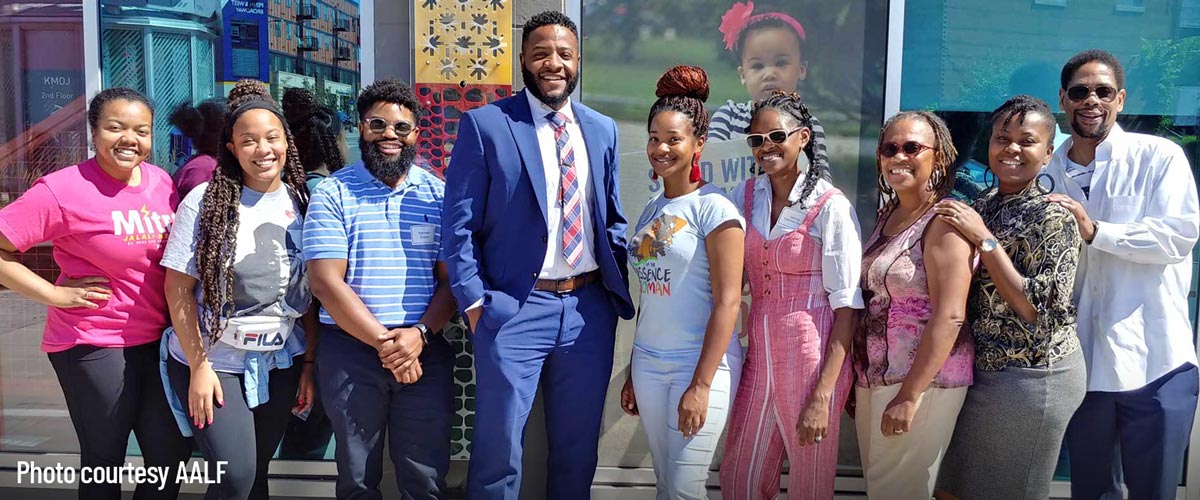
The approach needs to center our priority communities and racial equity.
Kevin Walker cautions that the path ahead is nuanced and that systemic change doesn’t happen without true commitment.
He says, “Reimagining and restructuring existing systems and structures that perpetuate injustice is extremely hard work for the changemakers we fund. It’s also vital. Driving toward transformation of this magnitude is ultimately the most meaningful work we can do as a foundation.”
Our program officers have been in ongoing contact with grantees throughout this time. Karla Miller, our program director, says her team is focusing on how the approach can inspire us to find new ways to support grantees in their work to advance racial equity.
“At this time,” she says, “we need to listen to our partners more intently than ever. They are working hard to change the system that poses so many barriers to prosperity and racial equity, and we need to fund their work to develop solutions tailored to their communities.”
Board Chair Lynda Bourque Moss sees Respond, Reimagine, and Restructure as a concept for something profound, far reaching, full of hope, and fundamental to the work of the Foundation and its board. She says:
“For me, it’s about the power to imagine and create a future that is equitable and a future that reflects the aspirations of our priority communities and vulnerable populations.”
Lynda Bourque Moss
Board Chair, Northwest Area Foundation
Although grantees are facing systemic racism and economic and health challenges head on, they’re also seeing opportunities to reimagine systems that work better.
Nick Tilsen (Oglala Lakota), president and CEO of NDN Collective, is one of the leaders in our region who is embracing systemic change. In his words:
“The normal never did us justice. The normal meant injustices for Indigenous people. The normal meant underinvestment of our people, the fossil fuel industry exploiting our lands and communities. We don’t want to go back to supporting the same old economic systems, the same old energy systems. There’s opportunity here to build a new world.”
Nick Tilsen
President and CEO, NDN Collective
Here are examples of grantee ideas that are informing our thinking.
After reaching out to more than 100 grantees this spring, we began to gather ideas about how this might look. Variations on responding, reimagining, and restructuring came from many of the grantees.
First Nations Development Institute is one of those organizations. Michael Roberts (Tlingit) is its president and CEO. According to him:
“Native communities throughout the US have had to respond to crises too often. But here at First Nations we know that these same communities have always had the ingenuity and energy to solve their own problems—even one as great as taking care of their community members during this COVID-19 pandemic.”
Michael Roberts
President and CEO, First Nations Development Institute
“First Nations’ response to this pandemic,” he adds, “has been to make resources immediately available through our COVID-19 Emergency Response Fund, which allows us to stand alongside Native communities as they reimagine their communities and begin reconstructing their economies.”
Marcus Owens of AALF also viewed the underlying issues of this year’s crises as challenges that need responses that go beyond immediate needs and “address the long-standing educational, economic development, health and wellness, and family and culture impacts of the pandemic and civil uprising in our state.”
Jackson Brossy (Navajo), executive director of the Native CDFI Network (NCN), found direct connections between NCN’s immediate responses and its ongoing programming. NCN provides connections, innovative solutions, and policy advocacy that support the work of Native community development financial institutions (CDFIs) to open up access to capital in ways that meet the cultural needs of Native communities.
“The Native CDFI Network had just held a successful National Native CDFI Summit,” he says. “Then we had to pivot and provide critical online networking space to help Native CDFIs respond to COVID-19. Within the first two weeks of the pandemic, Native CDFIs began planning for large scale loan restructuring to help our communities and economies find innovative ways to weather the challenges.”
Chrystel Cornelius (Ojibwe; Oneida) is CEO of First Nations Oweesta Corporation, which also provides key infrastructure for the work of Native CDFIs. She says:
“Our nation stands at a unique moment in our history, one where it becomes increasingly obvious to us all that the social and financial systems in America do little to protect the most vulnerable among us.”
Chrystel Cornelius
CEO, First Nations Oweesta Corporation
“However,” she adds, “we at Oweesta remain committed to showing the same resourcefulness and resilience the communities we serve have demonstrated through the crisis. They’re helping us reimagine a different future where the equal distribution of wealth and opportunity are available to us all.”
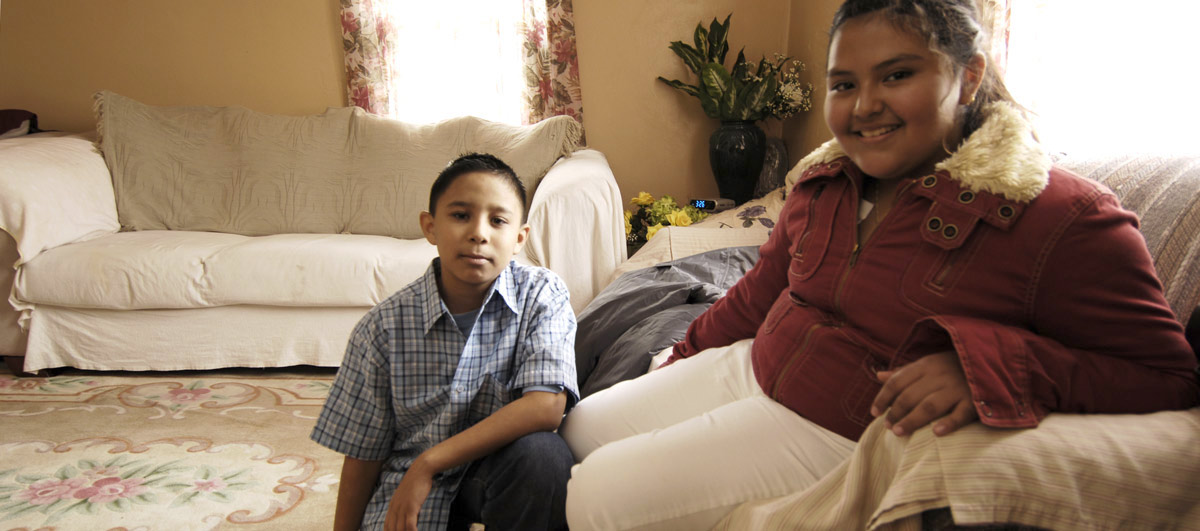
We’re taking new changes to heart internally, too.
Before the pandemic hit, we had been planning to refine our strategic grantmaking framework this year in response to many of these same challenges. But we’ve postponed this refinement until next year because the crises have intensified the inequities our grantees face. We need to learn in real time from the crises of 2020 before we make longer-term strategic decisions.
“Things are extremely fluid right now,” explains Kevin Walker, “and the future impact of the current situation on our grantees is still an unknown.”
What is clear, Kevin says, is that racial equity needs to be at the heart of the strategic framework. Racial equity is already a focus, but the crises have underscored how integral it is to any change we’re trying to advance.
In fact, planned work on developing an organization-wide racial equity framework this year is continuing apace. Margie Jo Eun Joo Andreason, our diversity equity inclusion (DEI) manager, understands that the crises have increased the urgency for it.
“The Foundation has been on this DEI journey for three years, and it has been a driving force for our work,” she says. “This moment represents an opportunity to further embed racial equity into our everyday decisions.”
For that work to succeed, it must be geared toward real change. Margie explains:
“Talk is easy. But how do we make sure that our values of diversity, equity, and inclusion are reflected in our practices, our procedures, our interactions with each other? How do we interact with grantees? Are our values embodied throughout our entire organization, including our investments, our budget process?
“This is not a matter of saying certain words. Systemic transformation for an organization is a journey that takes absolute engagement.”
Margie Jo Eun Joo Andreason
Diversity Equity Inclusion Manager, Northwest Area Foundation
Kevin Walker agrees. “For years, we’ve known that structural disadvantage around race is at the core of what our priority communities are struggling with, and we’ve tried to fund in a way that’s responsive to that reality.
“But what happened after George Floyd was killed was a wake-up call for us, nonetheless. And to see how people have become galvanized in the way that they have—our grantees, our peer funders—is not only inspiring, but it also presents a tremendous opportunity. We need to be forceful about placing issues of racism at the center of how we think and communicate. It’s time.”
When the current crises hit, we had also been working on revising and updating our organization-wide values. We’re continuing this work, too, because as Margie says, “Values need to serve as a moral and ethical compass to guide the culture of the Foundation as it transforms itself inside and out so we’re aligned with the grantees we’re honored to support.”
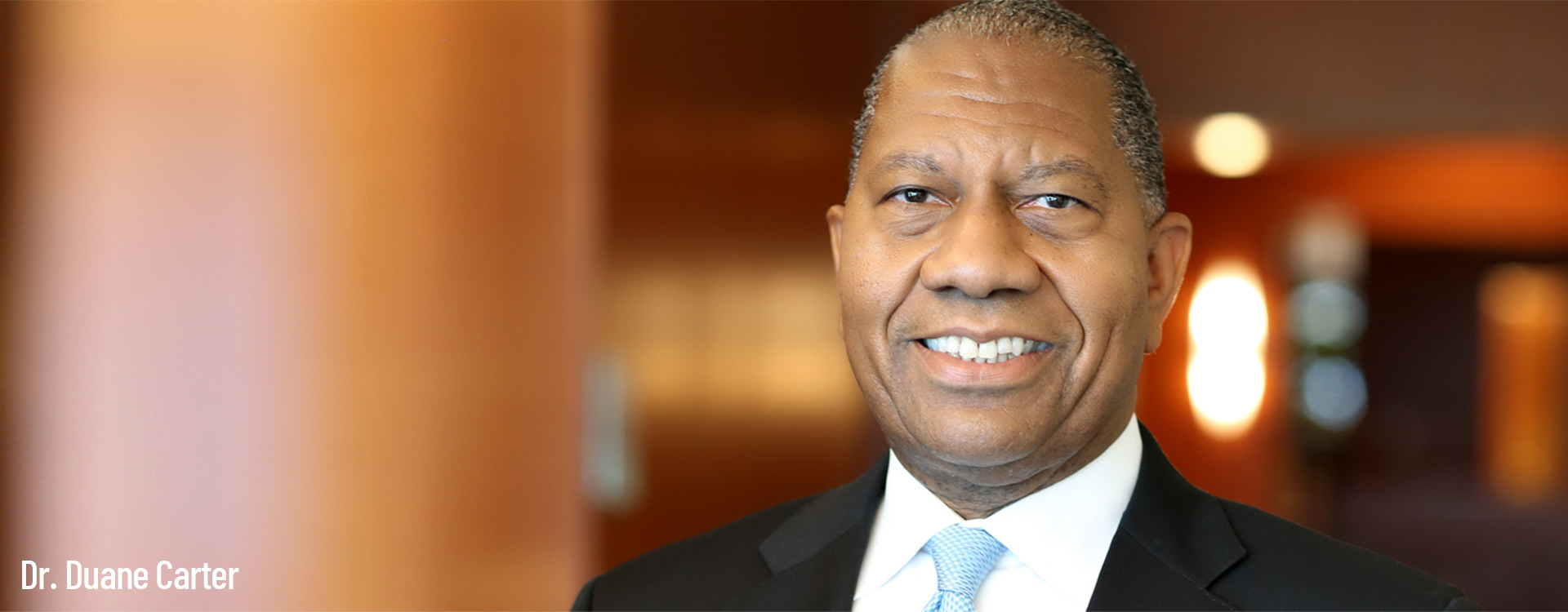
“The Foundation and its board are responding with the full weight of our economic and political capital to stand with the diverse communities, people, and organizations we support,” says Dr. Duane Carter, who’s leading the board’s work on values. “We will help lead the organization in this work with our values, as reflected through our grants, our program-related investments (PRIs), our entire portfolio of investments.”
We hope you’ll check our website frequently for updates on how we are using our resources to respond to the extremely fluid situation on the ground. Our focus, now more than ever, is on the needs of our grantees as they navigate uncharted waters, dealing with unforeseen challenges while also seizing this historical moment to create new and better systems.
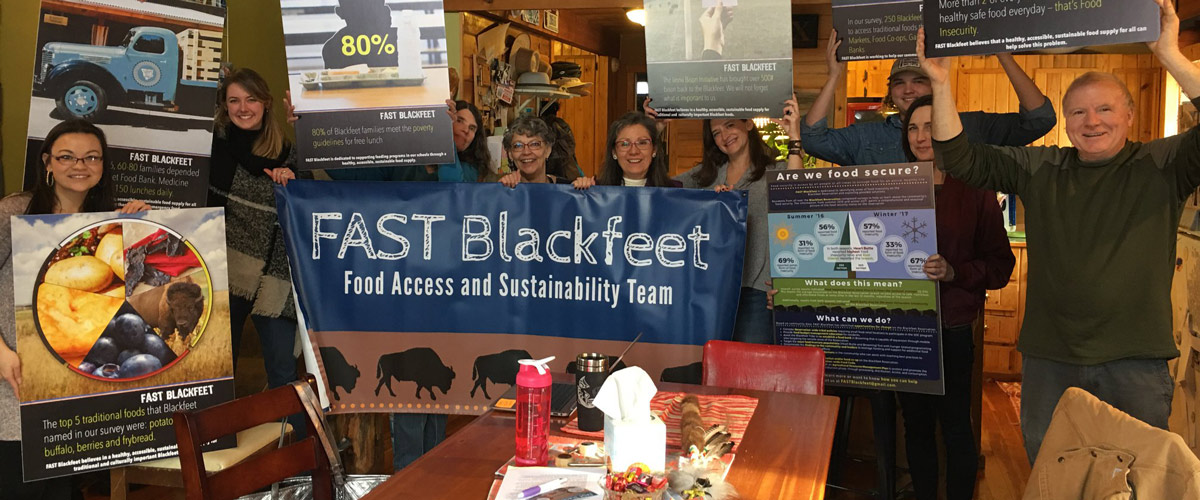
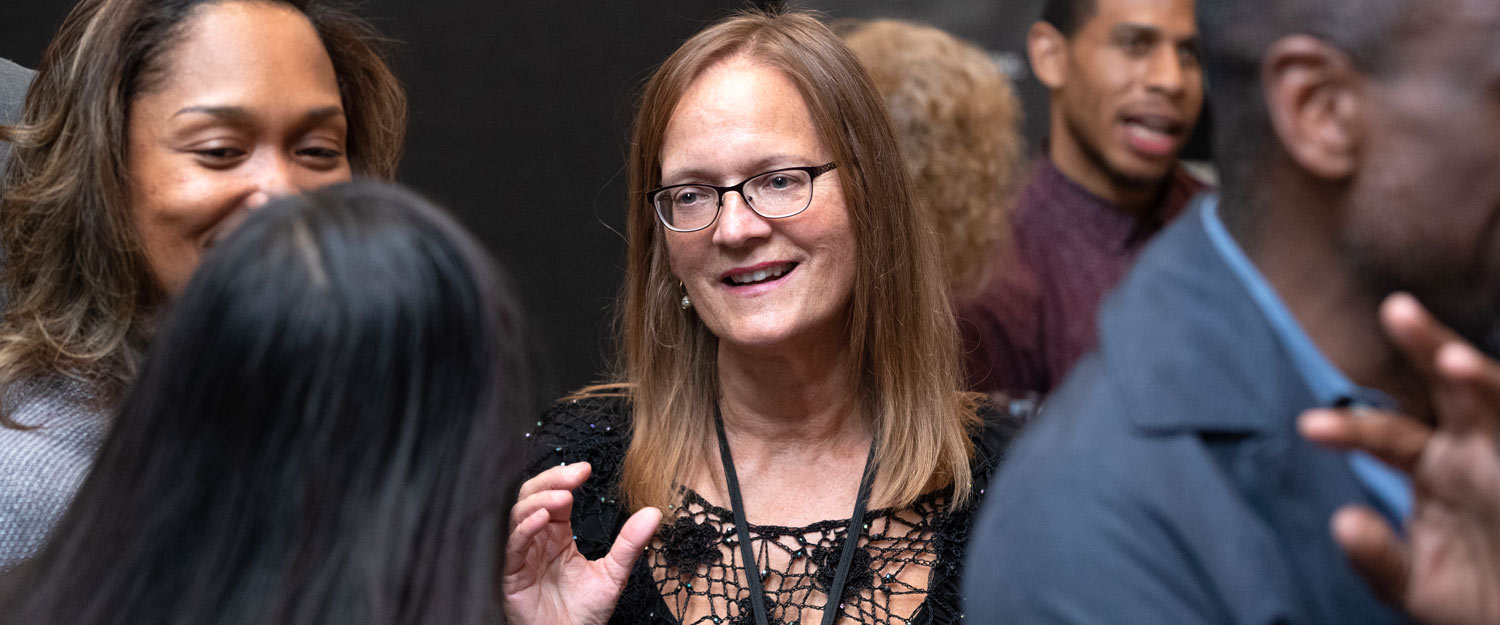
Our People
NWAF staff and board listing as of August 19, 2020
President's Office
Kevin Walker
President and CEO
Margie Jo Eun Joo Andreason
Diversity Equity Inclusion Manager
Paul Bachleitner
Communications Director
Olivia Robinson
Assistant to the President and Project Coordinator
Alli Naithani
Director of Organizational Effectiveness and Talent Development
Pa Dee Yang
Business Intern
Program
Karla Miller
Program Director
Deanna Arce
Program Operations Manager
Patrick Ciernia
Program Assistant
John Fetzer
Program Officer
Nikki Foster
Program Officer
Martin Jennings
Program Officer
Christianne Lind
Program Officer
Jennifer Racho
Program Officer
Cody Stalker
Program Coordinator
Finance and Administration
Millie Acamovic
Vice President of Finance and Administration/Chief Financial Officer
Karen Appelbaum
Operations Director
Roy Doan
Administrative Support Assistant
Sherry Fisher
Assistant to the Chief Financial Officer and Project Coordinator
Autumn Patterson
IT Strategy and Solutions Manager
Janelle Reich
Grants and Contracts Manager
Anna Rogers
Accountant
Matt Stowell
Controller
Mary Strube
Accountant
Board of Directors
Elisabeth C. Buck
Des Moines, IA
Cherie Buckner-Webb
Boise, ID
Duane Carter, EdD
Minneapolis, MN
Zachary Ducheneaux (vice chair)
Eagle Butte, SD
Libby Hlavka
Minneapolis, MN
James K. Laducer
Bismarck, ND
Joyce Lee
Seattle, WA
Lynda Bourque Moss (chair)
Billings, MT
Michelle Osborne
Hood River, OR
Georgie Slade
St. Paul, MN
Father Larry J. Snyder
St. Paul, MN
Maria Valandra
Billings, MT
Jennifer C. Williams
Seattle, WA
Financial Report
January 1–December 31, 2019
The Foundation paid out grants totaling $16,390,518 in this fiscal year.
Find complete listings of all grantees, 2019 and current.

Mission Investing
As of December 31, 2019, we’ve committed a total of $61.9 million to mission investments since we issued our first mission investment in 2004: $41.4 million for mission-related investments (MRIs) and $20.5 million for program-related investments (PRIs). During 2019, we issued one MRI for $2.5 million and five PRIs totaling $3.9 million.
Our 2014 mission-investment strategy called for us to commit $30 million to MRIs and $10 million to new PRIs. With our $41.4 million commitment, we’ve exceeded our goal for MRIs. Our new PRI commitments bring our total to $8.975 million toward our $10 million goal. We’re delighted with the social and economic outcomes. See our mission investing page for more.
Two Types of Investments
MISSION-RELATED INVESTMENTS (MRIs)
PROGRAM-RELATED INVESTMENTS (PRIs)
Our Region
Oregon, Washington, Idaho, Montana,
North Dakota, South Dakota, Minnesota, Iowa,
and 76 Native nations that share the same geography.
Credits
WRITING: Northwest Area Foundation and Clay Scott
COPYEDITING: Marianne Shay
DESIGN: Evology
PHOTOGRAPHY: Jaime Aguilar (Michael Roberts portrait), Uzoma Obasi, Steve Wewerka, and grantees African American Leadership Forum and First Nations Development Institute
Past Annual Reports
2019 Annual Report
2018 Annual Report
2017 Annual Report
2015 Annual Report
2014 Annual Report
In 2016, we began to reference the year of annual report publication instead of the year of the latest financials.

